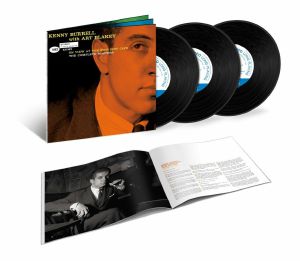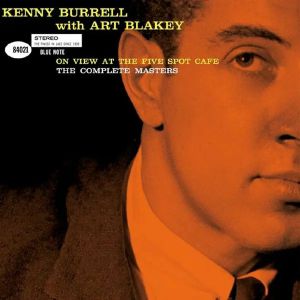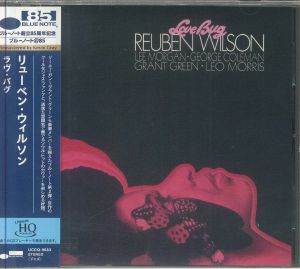Receive new release alerts for Blue Note
Blue Note 黑胶唱片和CD
Browse the latest Vinyl & CD releases on Blue NoteSimilar labels:
Items 1 to 5 of 5 on page 1 of 1
Kenny BURRELL with ART BLAKEY
On View At The Five Spot Cafe: The Complete Masters (Tone Poet Series) (gatefold 3xLP + booklet)
Cat: 750228 1. Rel: 24 Apr 25
Jazz
Played by: Juno Recommends Jazz
in stock $81.41
Review: By the time Kenny Burrell took the stage at the Five Spot Cafe in August 1959, he had already 90-degree head-turned his best jazz fellow travellers with a glissando of Blue Note LPs. But this gig, his first live date as a leader, brought a new kind of magic. Contracting Art Blakey, Tina Brooks, Roland Hanna, Bobby Timmons, and Ben Tucker on band duties, Burrell confidently executed a suite of hard bop soaked in sweat, swing, and soul. This 3xLP brings that steamy summer evening back to life in full analogue detail; housed in a tip-on trifold jacket with an accompanying booklet of rare Francis Wolff photos, an essay by Syd Schwartz, and new reflections from Burrell himself, it's a vivid snapshot of a moment when everything clicked.
… Read morePlayed by: Juno Recommends Jazz
in stock $15.50
Played by: Craig Charles Funk And Soul
in stock $17.47
Review: By 1960, Georgia-born tenor saxophonist Mobley was at the height of his powers, crafting a trilogy of hard bop masterpiecesiSoul Station, Roll Call and Workout. Roll Call, the middle entry, finds Mobley leading an inspired quintet featuring the young and fiery Freddie Hubbard on trumpet, alongside the rock-solid Soul Station rhythm section of pianist Wynton Kelly, bassist Paul Chambers and the explosive Art Blakey on drums. The result is a hard bop stunner, bursting with energy, interplay and lyrical phrasing. This reissue opens with the dynamic title track, a minor-key powerhouse that jumps out of the speakers, pushing each musician to deliver their best. Mobley and Hubbard's chemistry is electrifying, their solos crackling with urgency. The swaggering 'My Groove Your Move' follows, built on a confident, swinging groove, while 'A Baptist Beat' channels the deep, soulful call-and-response tradition of the black church. A second take of the latter further showcases the group's enthusiasm and spontaneity. The album's only standard, 'The More I See You', is a sublime moment of restraint, with Hubbard's use of the harmon mute adding a delicate, smoky touch. Mobley's playing here epitomises his gift for melodic improvisationisubtle yet deeply expressive. His warm, bluesy tone and sophisticated phrasing made him one of the most lyrical saxophonists of his era. Even decades later, Roll Call remains a cornerstone of hard bop.
… Read morePlayed by: Juno Recommends Jazz
in stock $30.41
Played by: Craig Charles Funk And Soul
in stock $18.02
Items 1 to 5 of 5 on page 1 of 1

 USD
USD










